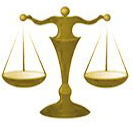There are many theories of product liabilities
Theories of product liabilities are fact specific to the human made product that caused the injury. The theories that can be plead in a complaint include and are not limited to:
- Strict products liability: this is a duty owned to consumers or bystanders who are effected and injured and or based on a product that was defectively designed or a product that could have been made effective without straining the notion of commercial feasibility.
- It may be based on an implied warranty: This need not be one that is spelled out in a manual or certificate. It may be an express warranty or a product that is believed to be one offered by a merchant, and fit for a particular purpose. For example, the merchant deals in those types of goods that leads to certain assumptions or based on the representations of the product itself.
- Products can also be based on a defective design or defective manufacturer: Remember that all persons in the supply chain of the product may be held liable and their degree of negligence is something that can be apportioned by the jury.
Strict liability can be unrelated to a products case
This may involve a wild animal that injures a person, an ultra hazardous activity, or dangerous activity that is not common and involves a risk of serious injury and cannot be performed without the risk of serious injury. So in these cases there is an absolute duty to make safe.
You may be able to prove a products case by government safety standards, or if there is a failure to warn about the dangers of the product by signs, literature, placards, and commercials: (we commonly see, for example, by drug manufacturers on TV.)
Defenses may include risks that were not known by science, or products that cannot otherwise be made safe, are unavoidably unsafe, or the misuse of the product as not intended by the manufacturer.
If you are injured by a defective product, it is important that the product is preserved
This would include a product that has been partially destroyed. This is very important because an expert engineer needs to examine the product to determine why the product failed or caused injury. So an immediate demand needs to be made in writing to preserve the product for examination.
Consult a lawyer, as this is only a very general overview. All cases are driven by specific facts and can differ. For a free consultation, contact the office of Personal Injury Attorney Manuel Moses, Esq. 236 West 26th Street Suite 303, New York, New York 10001. (212) 736-2624 Extension 11.
Nothing in this blog is intended to be formal legal advice you are urged to consult a qualified attorney for guidance of your construction accident or personal injury case.
